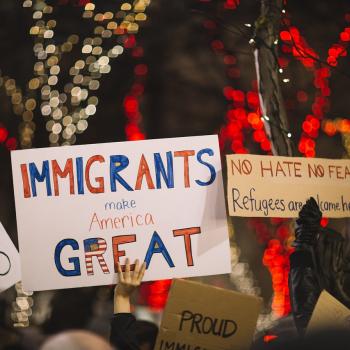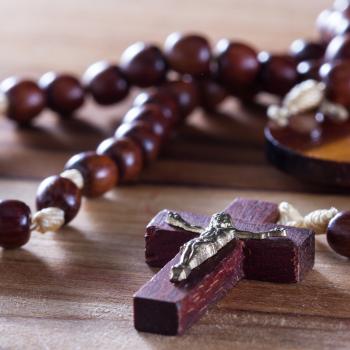I think the fear of death is largely derived out of the unknown. How will I die? When will it happen? Will it hurt? It’s natural to fear death — or at the very least feel apprehensive about it. However, as Catholics, we believe that our final days can be a time of great glory and spiritual revelation. Therefore, it is important that we handle our death with grace, submission, and dignity.
For many, dying with dignity translates to having control over when and how they’ll die. This couldn’t be more the opposite of Catholic belief. Think for a moment about our pro-life mantra: From conception to natural death. No doubt, the conception part gets a lot more focus in our society today, but those last two words, natural death, are just as important.
As it does with abortion, the Church takes an unwavering stance on issues of direct or assisted suicide and euthanasia. Luckily, assisted suicide and voluntary euthanasia do not enjoy a widespread legal status (the use of physician-assisted suicide is legal in only two states here in the U.S), but the debate exists, and unlike war or the death penalty, there is no gray area. These things are mortal sins. They are never to be permitted.
Of course, it begs the question, “If a person is suffering, or is in incredible pain, should they not have the choice to end it?”
In order to answer that question, I think it’s important to first stress the central point of being a Christian, which is, giving your entire self to God, releasing all control into his hands, and recognizing and accepting his plan in our lives.
Suffering is a natural part of life. Without God, it can seem like a hopeless venture. Yet, when God is present amidst our weakest and most painful moments we can grow closer to Him. Our suffering is a reminder of our humanity. It is a reminder of how much we truly need God.
This is especially true at the end of our lives, and why shouldn’t it be? We’re talking about the moments leading up to a literal encounter with our creator. This is the time we should seek God the most, and as Catholics we are particularly blessed, because we have the Sacraments and Last Rites to aid us in doing so.
As with everything else, The Catechism puts it best: We are stewards, not owners, of the life God has entrusted to us. It is not ours to dispose of. By taking matters into our own hands, we are simultaneously taking God out of the equation.
Now, on the subjects of suicide and euthanasia, there are some muddled areas that I feel need clarification. First, there is a huge distinction between extraordinary care and ordinary care. The former includes things like chemotherapy, resuscitation equipment, life support, dialysis, and ventilators. Halting the use of things like this does not fall under euthanasia or assisted suicide. In fact it’s quite the opposite. It’s the acceptance of our inability to defeat death. It allows death to come naturally.
The latter — ordinary care — includes the basic needs of survival like food and water. If we withheld food and water from anyone, that person would die. Therefore denying ourselves food or water, whether in a state of good health or in poor health, is suicide. A person who cannot feed themselves are nourished through a feeding tube. Removal of that tube is tantamount to suicide or euthanasia.
God has a plan, and try as we might no amount of scholarship or progress will ever allow us imperfect, finite humans to grasp the gravity of such a plan. We may not ever be able to understand why we are suffering, but rather than seek to end our pain by taking death into our own hands, we should seek God, and in those final moments we can follow the example of Christ and give our spirits up to him.
I want to end with a short story. Earlier this year, my wife and I attended the funeral of a friend who died tragically young. As the funeral Mass began, Father said something that struck me right in the heart: “Because of the resurrection, death does not have the final say.”
When I think of that, I have to ask myself, “What is there to fear, truly?” Death is just an step on the path to glory.
Human life is sacred because from its beginning it involves the creative action of God and it remains forever in a special relationship with the Creator, who is its sole end. God alone is the Lord of life from its beginning until its end.—The Catechism of the Catholic Church. Paragraph 2258.











